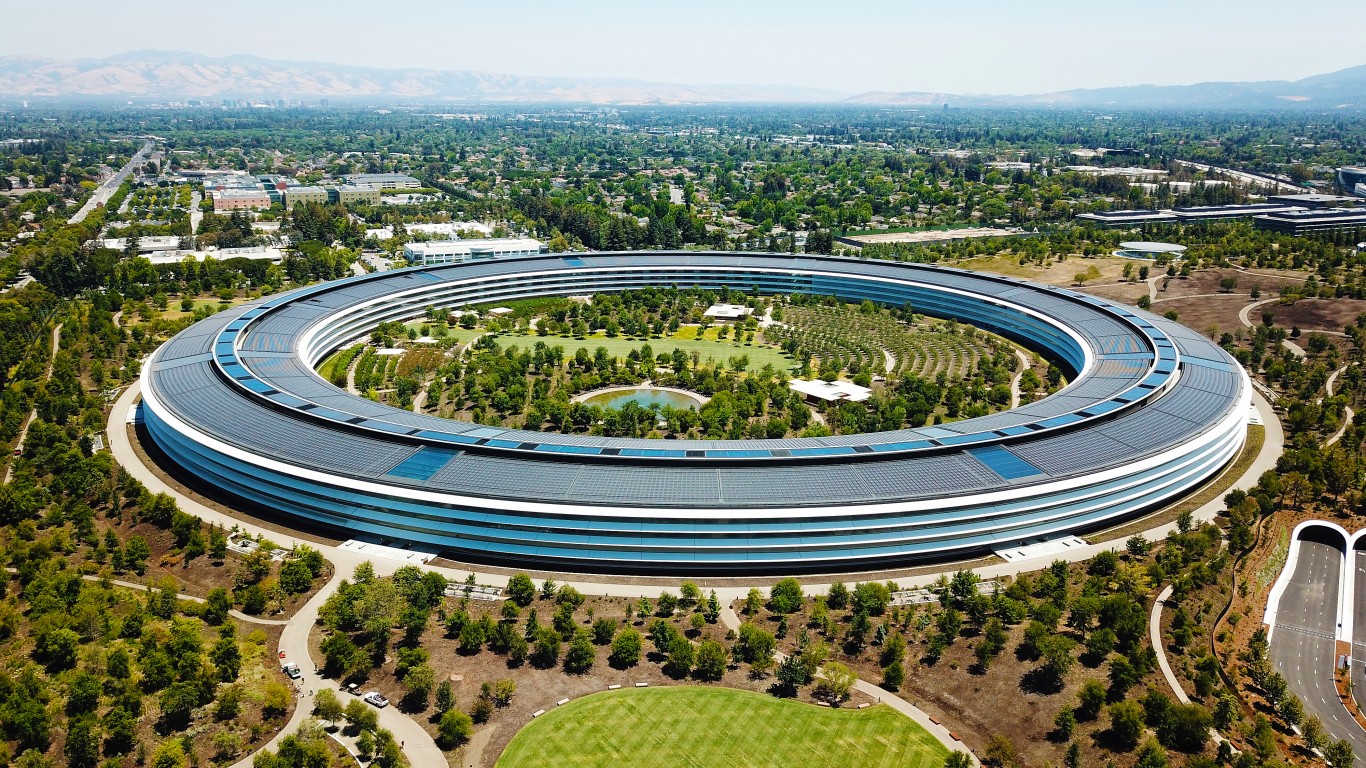Technology
What's Up With Apple: Return to Offices Delayed, Netflix Comes After Apple Arcade, and More

Published:

In response to the rising number of cases of COVID-19, Apple Inc. (NASDAQ: AAPL) reportedly has pushed out the date by which it expects employees to return to their offices and stores. Originally set for September, sources told Bloomberg that Apple has decided to delay the return until at least October.
The company also is recommending that Apple Store staff begin wearing masks again. Apple had dropped the requirement last month. Bloomberg cited other unnamed sources who said Apple told employees that in locations where local authorities have ordered new mask mandates, Apple’s retail employees “must comply.”
When streaming video giant Netflix reported quarterly results after markets closed Tuesday, the company confirmed its expansion into video games. Initially, at least, the games will be both free and ad-free, will not offer any in-app purchases and subscribers won’t have to buy individual titles. Co-CEO Reed Hastings noted, “We’re a one-product company,’ and that product is a single subscription for all the company’s services and features.”
According to the CNET report, Netflix plans to “experiment making games based on existing Netflix franchises so fandoms dive deeper into their favorite stories and characters, but it’ll try standalone games that are wholly original, potentially spawning spin-off shows or movies themselves. It’ll explore making games based on media existing outside Netflix’s galaxy — imagine a Netflix game based on a book series or comic.”
Most observers see this as a direct threat to Apple Arcade, Apple’s $4.99-per-month subscription gaming service. Both Google, with its Stadia streaming game service, and Amazon, which has its own cloud gaming service and its own gaming studio, charge for game playing. Stadia costs $9.99 a month and Amazon’s Luna service costs $5.99 a month.
Beginning next year, all new iPhones will be 5G-capable, according to Nikkei Asia as cited by Reuters Wednesday morning. Apple plans to add 5G capability to its low-end iPhone SE in the first half of 2022, according to the report. The SE will also get a new A15 Bionic chip next year. The iPhone mini will not be updated after failing to attract users.
Finally, the Financial Times editorial board has added its voice to calls for smartphone makers, including Apple, to take steps to put an end to surveillance of journalists, human rights advocates and ordinary people who may inadvertently be the targets of software like NSO’s Pegasus:
Most smartphone users are protected. The challenge for tech companies, such as Apple, arises when individuals are targeted by software developed by groups like NSO, whose entire purpose is to breach tech companies’ defences. The latest revelations suggest there is more scope for collaboration between tech groups and governments to identify vulnerabilities, share findings and ensure users’ protection.
The comments follow revelations earlier this week that a forensic analysis of iPhones showed that the devices had been infected with the surveillance program.
Thank you for reading! Have some feedback for us?
Contact the 24/7 Wall St. editorial team.